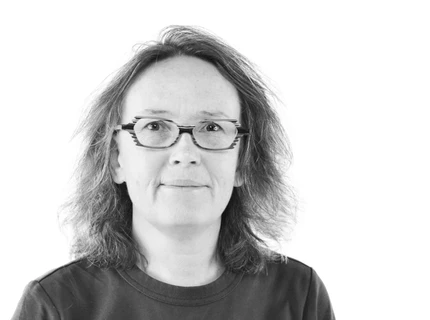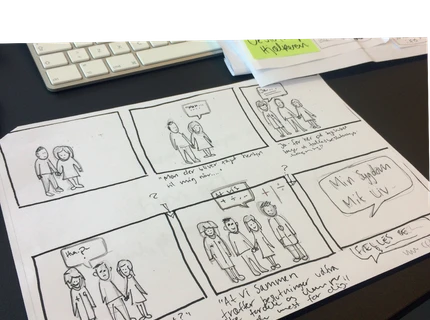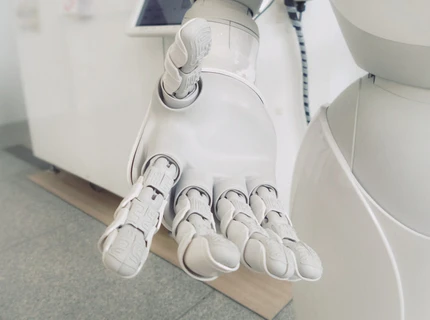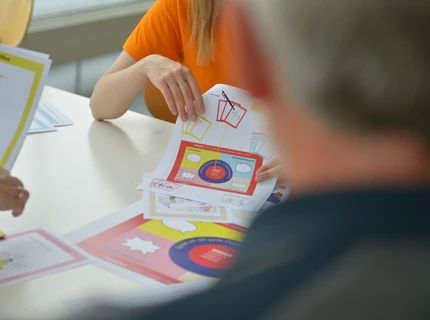
FUTE - Future Teaching
- Deltagere fra Designskolen Kolding
-
Anne Katrine Gøtzsche Gelting
Laila Grøn Truelsen
Lene Nyhus Friis
- Forsknings- og udviklings projekttype
- Forskning og udvikling
- Projektperiode
- 2017 - 2020
- Projektledelse
Designskolen Kolding og Syddanmarks EU-kontor i Bruxelles
- LAB
- LAB for Socialt Design
LAB for Play Design - LAB tema
- Citizenship and Agency
Playful Learning - Eksterne links
- FUTE
About
The FUTE hypothesis is that by involving pupils more extensively in the planning and execution of teaching, and by bringing more meaningful and real-life problem solving into the classroom, pupils will be more engaged and teaching can become more collaborative and interesting. The project aims to transfer design thinking and co-creation methods to the classroom, creating a modern approach to teaching where challenge framing and problem-solving skills, which can boost innovative thinking, are put at the forefront.
Goal
The FUTE project has therefore developed a didactic platform for teacher training, and created tools that help teachers by implementing more design thinking into the educational curriculum in schools across Europe. With support from the FUTE material, broader interdisciplinary issues – like understanding climate change or homelessness – can become cross-disciplinary project courses that use design thinking and design methods.
The purpose is to help the pupils to frame a problem and create a solution doing research and analysis and then craft a tangible solution to a problem (e.g. a new playground for the neighbourhood kindergarten where children can learn about climate change, or a ‘Home in a Backpack’ for homeless people). Such an approach to learning and teaching can be incorporated into an engaging collaborative process that also develops innovation skills. Some problems within the schools are of a more general nature relating to class management or interactions between the school and the surrounding community.
The present Method Collection includes some techniques that can be used as a collaborative approach to framing and understanding the problem in depth, suggesting new innovative solutions that commit everyone involved in new ways.
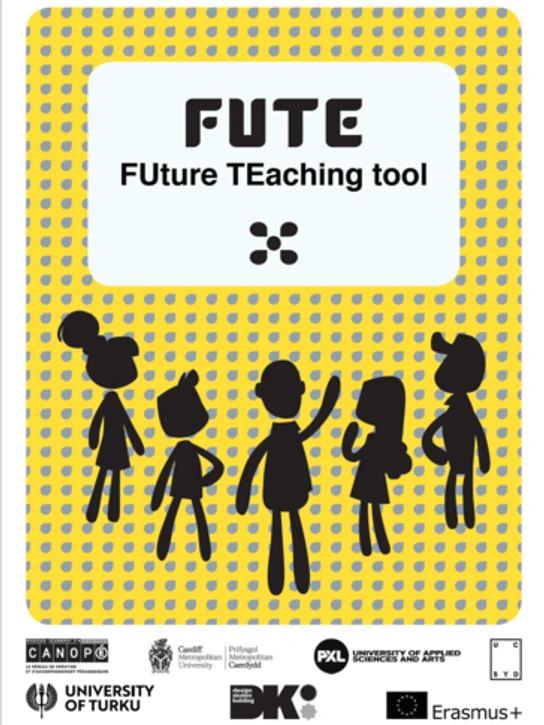
Methods and results
The FUTE hypothesis is that by involving pupils more extensively in the planning and execution of teaching, and by bringing more meaningful and real-life problem solving into the classroom, pupils will be more engaged and teaching can become more collaborative and interesting. The project aims to transfer design thinking and co-creation methods to the classroom, creating a modern approach to teaching where challenge framing and problem-solving skills, which can boost innovative thinking, are put at the forefront.
The FUTE project has therefore developed a didactic platform for teacher training, and created tools that help teachers by implementing more design thinking into the educational curriculum in schools across Europe. With support from the FUTE material, broader interdisciplinary issues – like understanding climate change or homelessness – can become cross-disciplinary project courses that use design thinking and design methods. The purpose is to help the pupils to frame a problem and create a solution doing research and analysis and then craft a tangible solution to a problem (e.g. a new playground for the neighbourhood kindergarten where children can learn about climate change, or a ‘Home in a Backpack’ for homeless people).
Such an approach to learning and teaching can be incorporated into an engaging collaborative process that also develops innovation skills. Some problems within the schools are of a more general nature relating to class management or interactions between the school and the surrounding community. The present Method Collection includes some techniques that can be used as a collaborative approach to framing and understanding the problem in depth, suggesting new innovative solutions that commit everyone involved in new ways.
